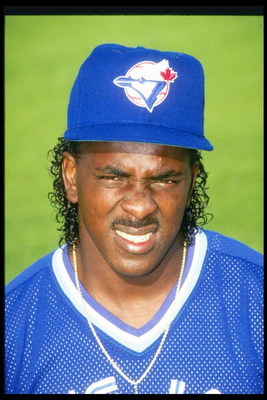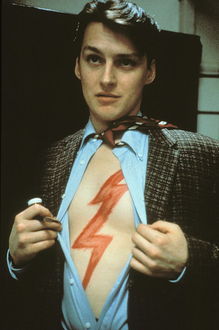Speedy Davis brings new dimension to Jays’ offence
With just a trace of subjectivity, here’s Davis’s succinct summary of his offensive game.
“Hard to defend,” he began. “Goes line to line, left to right. And then, once I get on, that’s where I have a lot of fun — on base. For the pitchers, not good. For me, it’s time to have fun, and score a lot of runs.”
Jays general manager Alex Anthopoulos, who occasionally tends to verbosity, was positively pithy in his portrayal of his new outfielder.
“Great kid. Hard worker,” he said. “Very respectful. Late bloomer. Someone who’s looking to get better.”
Anthopoulos and new manager John Farrell are determined to change that picture.
Not only do they covet more stolen bases, they seek to instil more aggressive habits in general on the basepaths.
From the day Davis joined his new teammates in spring training, he has heard the club’s deep thinkers preach the new evangel: A team can’t win on homers alone.
Romero gives hitters fits in first batting-practice session
It was only his first day throwing to hitters, but Ricky Romero was not holding much back.
“For me, the adrenaline kicks in. You’re trying to pretty much take it into game mode. It’s exciting,” the Toronto Blue Jays presumptive opening-day starter said after a 30-pitch session on a practice diamond Monday.
It was not much fun for the hitters, including Jose Bautista, Adam Lind and Aaron Hill.
“A lot of ground balls, which is a good sign,” Romero said.
Podsednik out indefinitely with recurrent foot problem
Veteran outfielder Scott Podsednik has a painful condition in his left foot that will keep him out of action for an indefinite period, Toronto Blue Jays manager John Farrell said Monday.
Podsednik signed a minor-league contract last week with an invitation to major-league camp. He was expected to report Sunday, but sent word that he has plantar fasciitis, a condition that forced him to miss the final three weeks of last season while playing for the Los Angeles Dodgers.
“It’s a re-aggravation of the injury that he had a year ago,” Farrell said.
McDonald branches out behind the plate
John McDonald was inspecting infielders’ gloves when a reporter handed him a catcher’s mitt. He grinned.
“You’re digging deep for a story,” he said.
Perhaps not. Two hours earlier, the veteran shortstop had donned full catcher’s gear and caught Deck McGuire, the Jays’ top draft pick last June, during a 25-pitch session.
It was the first day pitchers moved from the bullpen to the full diamond, with batters standing in (but not swinging). With a passel of pitchers scheduled for three diamonds, everybody who could catch was pressed into service.
When the session ended, the 5-foot-10 McDonald walked off the field , chatting and laughing with the 6-foot-6 McGuire. Shortly thereafter, manager John Farrell confirmed that McDonald – known for his defensive prowess on the infield – would see more serious action behind the plate in the coming weeks.
“He is our third catcher when the season opens,” Farrell said.
Globe and Mail
Hechavarria settles in with Blue Jays
The dream started at age 12 for Adeiny Hechavarria, when he first watched a pirated recording of a major-league baseball game.
Inspired, he'd occasionally sneak into one of the resort hotels near his home in Santiago De Cuba, trying to catch some live action amid the rich tourists sitting at the bar.
Few in professional baseball have had to go through as much in order to chase their dream.
Hechavarria had long flirted with the idea of one day trying to escape Cuba, but he became convinced it was the right thing to do when as a 17-year-old he played in a Pan American tournament in Mexico.
He was stunned by the difference in quality of life between Mexicans and Cubans, and the idea of defecting took hold. At home, he talked things over with his father, Diosmede, who urged him not to take the risk.
For Cuban baseball players, Hechavarria explains, finding someone to trust is extremely difficult. Undercover government agents are everywhere, he says, offering ways off the island to test a person's loyalty.
Carefully, he found his way to a boat with a capacity for about 30 people. He and 11 others made the trip through choppy waters to Mexico.
Toronto Star
Secrecy surrounding Snider injury belies Jays’ policy of transparency
On Sunday, Farrell was asked directly by reporters if there was a physical reason starting left fielder Travis Snider had not participated in spring training thus far. The manager suggested his young slugger had just a little “tightness” in his core area. When asked if there was a physical issue, Farrell responded to one respected beat reporter: “No, no, no. No. Just bringing him along a little slower.”
When Snider was then approached about being shut down from any and all baseball activities, he candidly admitted he injured a muscle in his upper-right rib cage playing golf with teammates, that his intercostal muscle strain precluded him from hitting or throwing. Nothing to worry about since opening day is six weeks hence. Very true, but why the Jays’ shroud of secrecy?
Toronto Sun
Litsch trying to forget last two years
Jesse Litsch is determined to drop the last two years into a deep, dark lake of amnesia. He’s ready to party like it’s 2008.
That was his last full healthy year when he established himself into a steady spot in the Blue Jay rotation, made 28 starts, tossed 176 innings and won 13 games with a 3.58 ERA.
In 2009, he underwent reconstructive elbow surgery and in 2010 had his return shortened by hip surgery.
Now he’s back, fully healthy and ready to make up for lost time.
A player's makeup might determine whether he makes it or not
As a team with a stated goal of building itself into a winner and then sustaining that status through constant renewal from the farm system, minor league matters have taken on a more structured and important role in the Blue Jays scheme in the last two years.
No fewer than 17 of the 62 players at the big-league camp are minor-leaguers, ranging from players like Deck McGuire getting his first taste of pro ball to those like Zach Stewart, who is going to get to compete for a rotation spot.
Most are at least a year or two or maybe more away but they’ve all earned it in one way or another.
“Some guys, it’s a huge benefit to be here,” said Tony LaCava, VP of baseball operations. “We’d like to see them earn it. When they do get it, the biggest benefit they get is to see what it takes, see the examples of the kinds of routines players need to have.”
It’s not for everybody. It takes maturity to come to big-league camp and not have it get into your head.
JMac mentoring Deck McGuire
Deck McGuire has drawn John McDonald as an unofficial mentor in this first week of spring training and he can’t think of a better way to be getting his feet wet at his first professional camp.
“He’s unbelievable,” said McGuire. “He’s really helped me out the couple of times he caught me. He’s been able to make me feel I belong, with his words of wisdom.”
Shi Davidi from a couple days ago
Seeking to honour to daughter's memory, Chad Cordero aims for comeback with Jays
Chad Cordero is reminded every time he looks down at the inside of his left forearm.
He's reminded of a hurt far worse than the regular pain that comes with pitching for a living, of a wound that unlike even the most debilitating of sports injuries, will never, ever heal.
Daughter Tehya Irene was 11 weeks old when Sudden Infant Death Syndrome took her life in early December. The tattoo of her pillowy cheeks, piercing dark eyes, and small tuft of spiky black hair, is a reminder of what real adversity is, and what is truly unfair in life.
"It's been a very rough last couple of years, especially the last couple of months," says Cordero, a former all-star closer trying to rebound from two injury-filled seasons with the Toronto Blue Jays.
"I think this is making me a stronger person, it's giving me a ton of motivation to go out there and throw well. I want to do this for my daughter, because she'll never have the chance to see me play. If I can get back out there, I'll know I did it all for her."
"I would love to one day (close) again but at this point in my career, I'm trying to do whatever I can to stay up here," says Cordero. "Whether that means being a mop-up guy, it's something I'd have to get used to. But if I have to do it to be in the big-leagues again, I'll definitely do anything."
"I'm trying to do it for her," says Cordero, looking to a framed picture of Tehya in his locker. "I'm going to try and do my best, make sure I'm nice and healthy and give everything I can to make this team for her."
If you only have a few minutes, I suggest reading the full Shi Davidi articles (Hech and Cordero, John Lott's pieces from the NP are good as well).
















